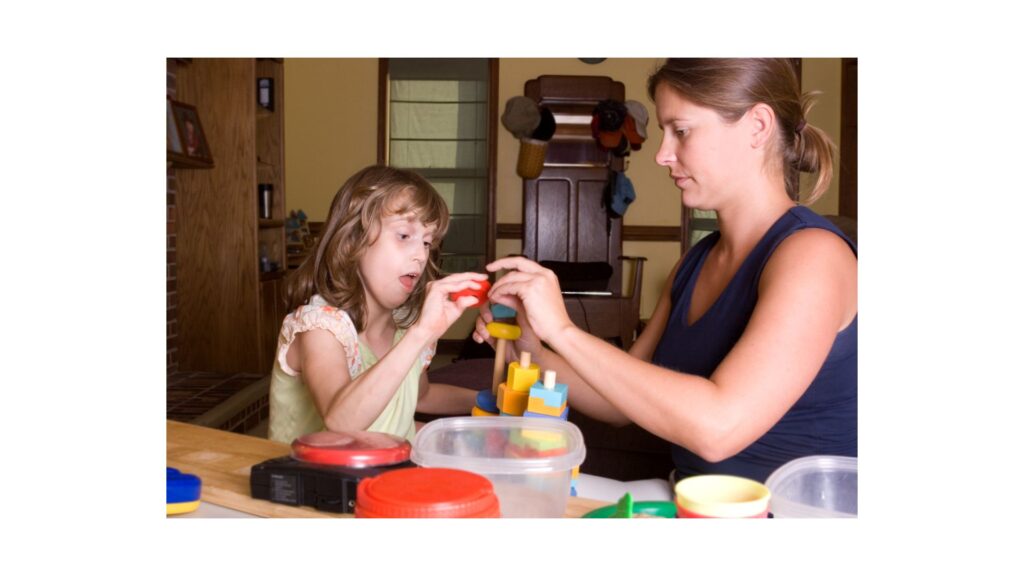Navigating through the complexities of human behavior can often feel like traversing a labyrinthine maze, filled with twists, turns, and unexpected challenges. Whether it’s dealing with a child’s tantrums, a teenager’s defiance, or an adult’s entrenched habits, the realm of behavioral challenges can be daunting. However, amidst this labyrinth, there exists a guiding light: behavior therapy.
In recent years, behavior therapy has emerged as a powerful tool for understanding, addressing, and managing challenging behaviors across various age groups and contexts. By delving into the intricate interplay between thoughts, feelings, and actions, behavior therapy offers a holistic approach that seeks not only to modify behaviors but also to uncover their underlying causes.
In this blog post, we will explore the manifold benefits of behavior therapy in managing challenging behaviors. From its evidence-based techniques to its individualized strategies, behavior therapy offers a beacon of hope for individuals and families grappling with behavioral issues. Join us as we embark on a journey to unravel the transformative potential of behavior therapy and discover how it can pave the way towards a brighter, more harmonious future.
Evidence-Based Techniques in Behavior Therapy
Behavior therapy stands on a foundation of scientific evidence, utilizing techniques that have been rigorously studied and proven effective in managing challenging behaviors. These evidence-based techniques provide therapists and clients with a roadmap for change, grounded in empirical research and clinical expertise. In this section, we will delve into some of the key evidence-based techniques employed in behavior therapy.

- Applied Behavior Analysis (ABA): One of the cornerstones of behavior therapy, Applied Behavior Analysis (ABA), is a systematic approach to understanding and modifying behavior. ABA breaks down complex behaviors into smaller, measurable components, allowing therapists to identify specific targets for intervention. Through techniques such as reinforcement, shaping, and chaining, ABA aims to increase desirable behaviors while decreasing problematic ones. Its effectiveness has been demonstrated across a wide range of populations, including individuals with autism spectrum disorder, developmental disabilities, and behavioral challenges.
- Cognitive Behavioral Therapy (CBT): While traditionally associated with the treatment of psychological disorders, Cognitive Behavioral Therapy (CBT) has also proven valuable in addressing challenging behaviors. CBT operates on the premise that our thoughts, feelings, and behaviors are interconnected, and by changing one aspect, we can influence the others. In behavior therapy, CBT techniques such as cognitive restructuring, behavioral activation, and exposure therapy are used to challenge negative thinking patterns, develop coping skills, and promote healthier behaviors.
- Positive Behavior Support (PBS): Positive Behavior Support (PBS) is a person-centered approach that focuses on understanding the function of behavior and modifying the environment to support positive outcomes. PBS aims to enhance quality of life by identifying and reinforcing desired behaviors while minimizing the occurrence of problem behaviors. This approach emphasizes collaboration among individuals, families, and support networks to create an environment that fosters success. PBS has been particularly effective in settings such as schools, where it promotes inclusive practices and creates supportive learning environments for all students.
- Behavior Modification Techniques: Behavior modification techniques encompass a diverse array of strategies aimed at shaping behavior through reinforcement, punishment, modeling, and skill-building. These techniques are tailored to the individual’s needs and preferences, drawing upon principles from learning theory and social psychology. Examples include token economies, contingency management, time-out procedures, and social skills training. By systematically reinforcing desired behaviors and providing alternatives to maladaptive ones, behavior modification techniques facilitate lasting behavior change.
- Exposure and Response Prevention (ERP): Exposure and Response Prevention (ERP) is a specialized technique commonly used in the treatment of anxiety disorders, obsessive-compulsive disorder (OCD), and phobias. ERP involves gradual exposure to feared stimuli or situations while refraining from engaging in compulsive or avoidance behaviors. By confronting fears in a controlled manner and resisting the urge to engage in safety behaviors, individuals learn that anxiety diminishes over time, leading to habituation and symptom reduction. ERP has demonstrated high efficacy rates and long-term benefits in treating various anxiety-related conditions.
Navigating Family Dynamics: Behavior Therapy for Family Units
Family dynamics play a crucial role in shaping individual behaviors and interactions. When faced with challenging behaviors within the family unit, traditional individual-focused approaches may fall short in addressing the complex interplay of relationships, communication patterns, and shared experiences. Enter behavior therapy for families—a collaborative, systemic approach that targets not just individual behaviors but also the family environment in which they occur. In this section, we will explore how behavior therapy can effectively navigate family dynamics to foster positive change and harmony.

Communication Skills Training
Effective communication lies at the heart of healthy family functioning. Behavior therapy for families often involves teaching members constructive communication skills, such as active listening, assertiveness, and conflict resolution. By fostering open, honest dialogue and encouraging empathy and understanding, families can address underlying issues more productively and reduce the likelihood of miscommunication and misunderstandings.
Behavioral Contracting
Behavioral contracting is a collaborative process wherein family members negotiate and agree upon specific behaviors and consequences. These contracts outline clear expectations, rewards for meeting them, and agreed-upon consequences for non-compliance. By establishing a framework of accountability and mutual responsibility, behavioral contracting promotes consistency and clarity within the family, reducing ambiguity and conflict surrounding behavioral expectations.
Family Problem-Solving
Behavior therapy empowers families to work together as a team to identify and solve problems collaboratively. Therapists facilitate structured problem-solving sessions, during which family members can express concerns, brainstorm solutions, and develop action plans. This process encourages shared decision-making and fosters a sense of ownership and investment in resolving issues, thereby strengthening family cohesion and resilience.
Role Reversal and Reframing
In some cases, family members may become entrenched in rigid roles or patterns of interaction that perpetuate dysfunction. Behavior therapy seeks to disrupt these patterns by promoting flexibility and role reversal. Through exercises such as role-playing and reframing, family members can gain new perspectives on their roles and interactions, leading to greater empathy, understanding, and adaptability.
Parenting Skills Training
Parenting can be one of the most challenging yet rewarding roles within the family unit. Behavior therapy offers parenting skills training to equip caregivers with the knowledge and tools they need to effectively manage behavior and promote positive development in their children. Topics may include setting limits, providing effective discipline, promoting independence, and fostering emotional regulation.
Conclusion
AWC Behavioral Health LLC, we believe in the profound benefits of behavior therapy for effectively managing challenging behaviors. Our commitment to offering comprehensive services in Boca Raton, Florida, stems from recognizing the transformative impact behavior therapy can have on individuals’ lives. Through personalized approaches and evidence-based techniques, we strive to empower our clients to navigate and overcome their challenges. By fostering a supportive and understanding environment, we aim to facilitate lasting positive changes and promote overall well-being. Contact us at 561-931-3837 to embark on a journey towards holistic growth and improved mental health.

